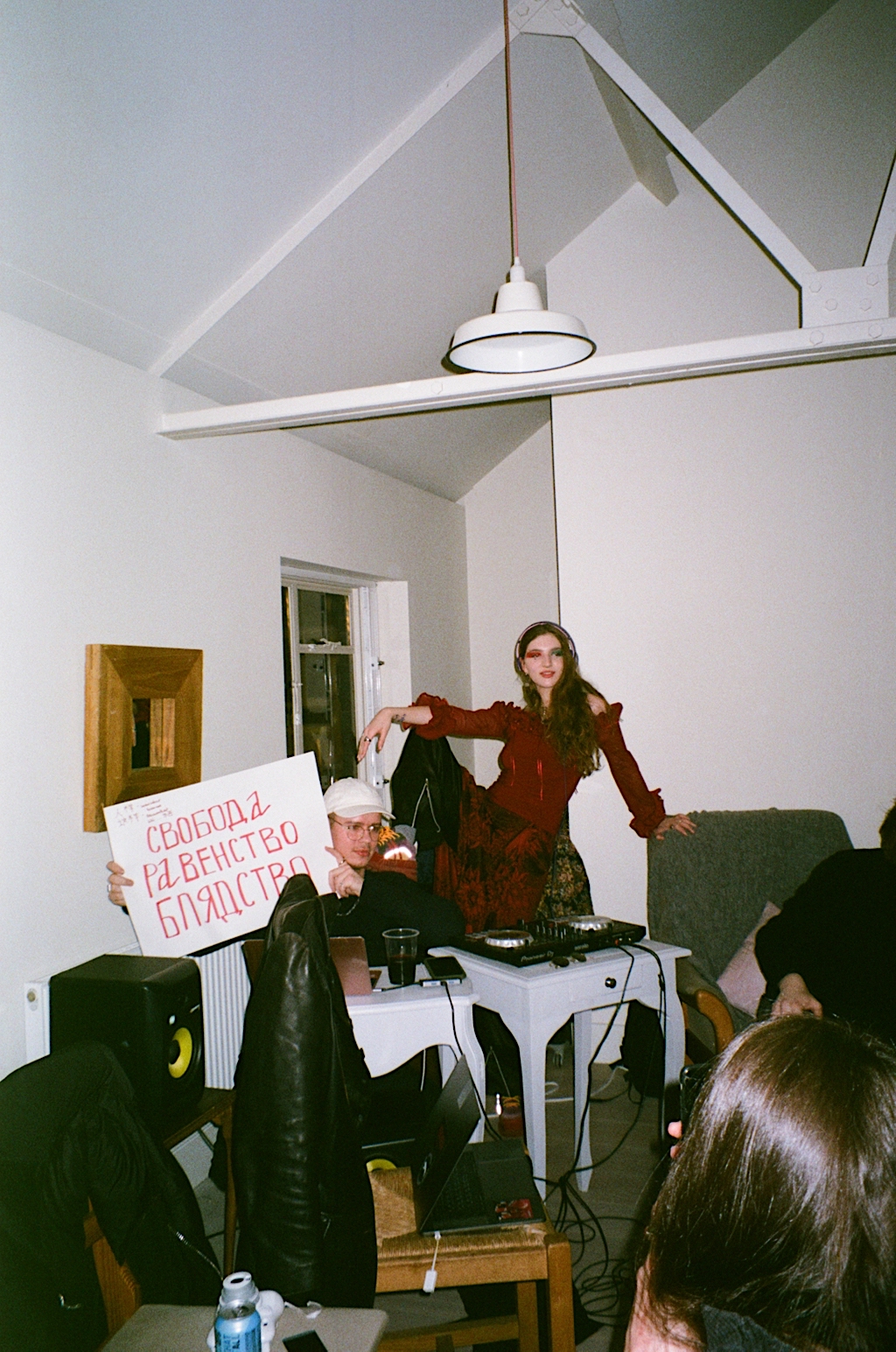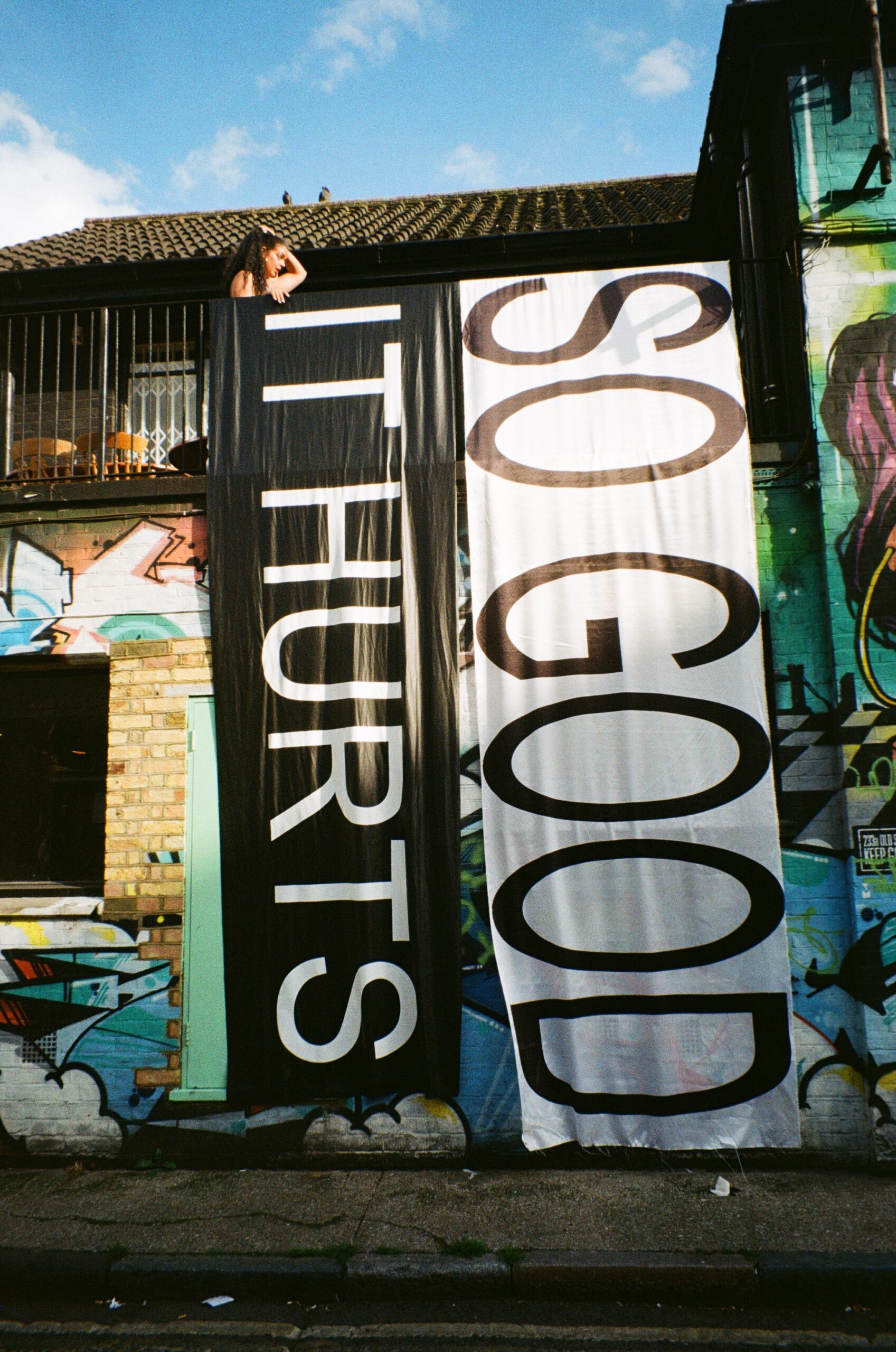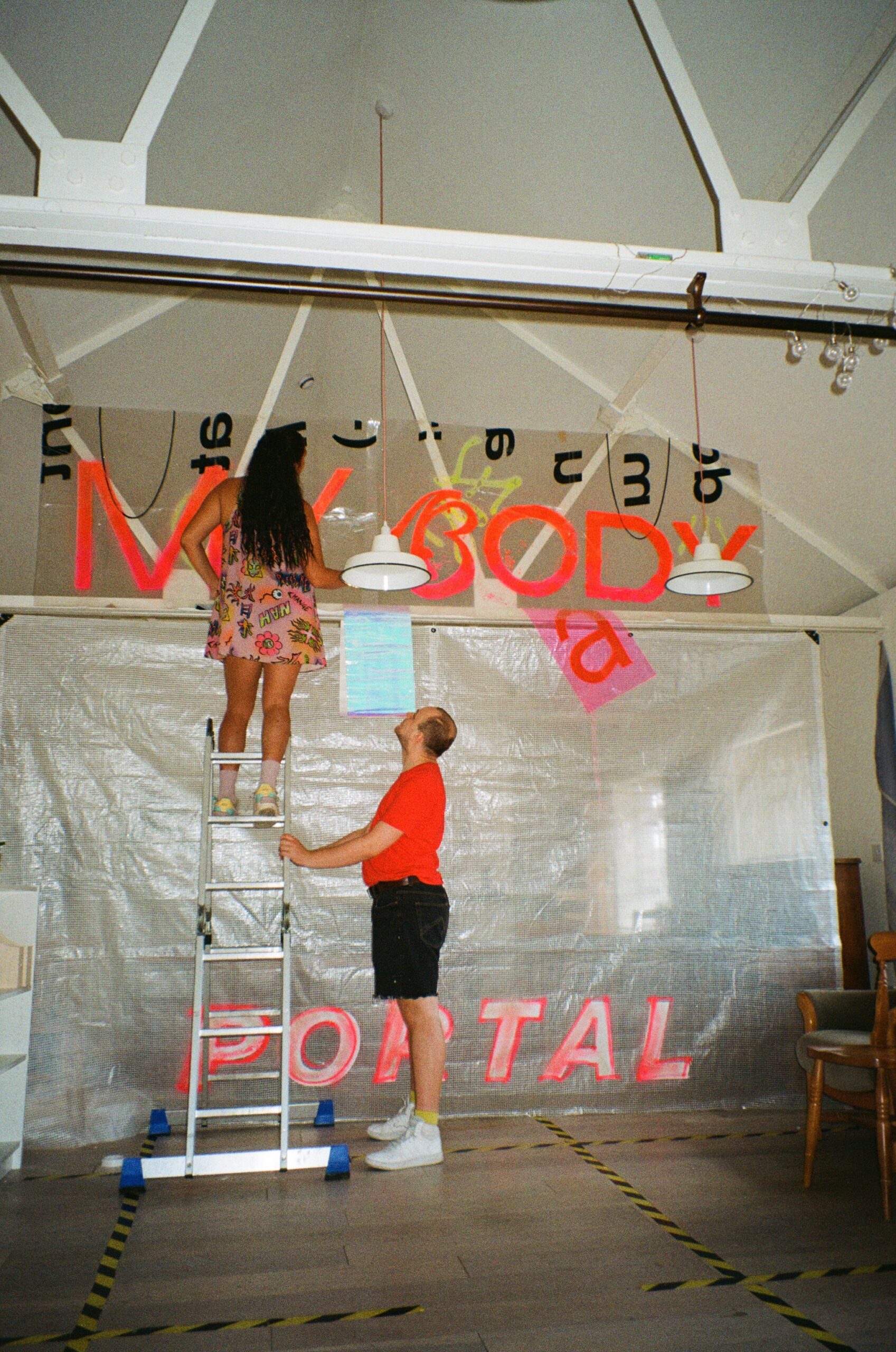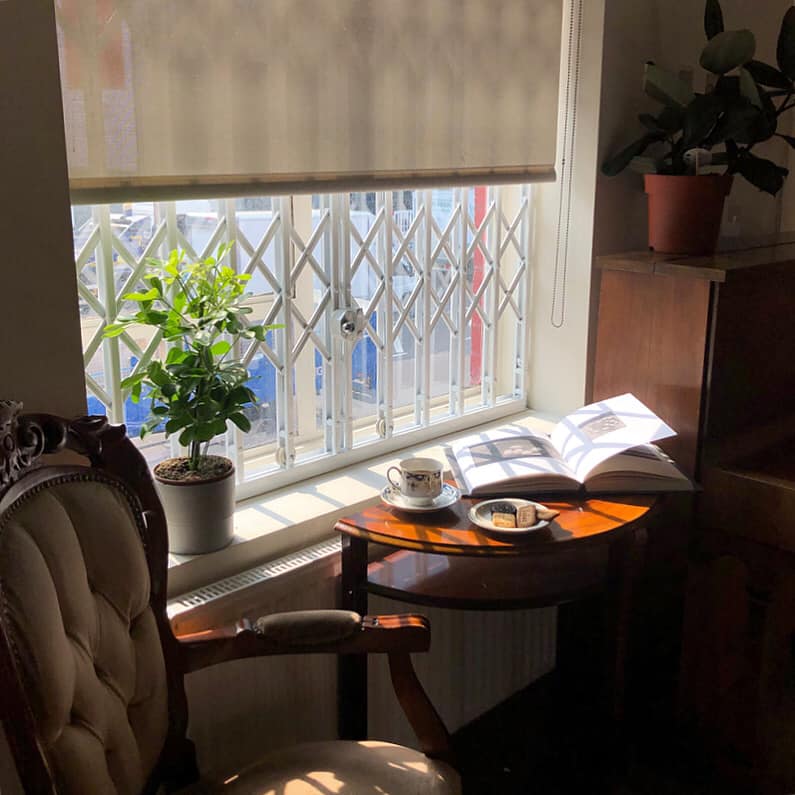RUBY ANDERSON interviews ZLATA MECHETINA, site manager of Ziferblat London, a newly founded creative community hub and coworking space. They discuss the future of the space and the importance of such alternative sites of display.
Ziferblat originated as a poetry club in Moscow. Its founders ran recurrent poetry reading sessions, and the small payments made by visitors were a way to sustain the place where they performed. This eventually developed into the franchise that now spans across Russia and the UK, with Ziferblat boasting seven worldwide locations, including one in London’s Old Street. ‘The concept of Ziferblat’, explains Zlata, ‘is “a place where you pay for time”’. The only social hub in the world where visitors pay per minute, each guest at Ziferblat becomes a micro-tenant of the space.
Ziferblat advertises itself as a space where students, freelancers, and (most excitingly) creatives can come together and collaborate in ‘one cosy space’, as its website expresses. Sticking faithfully to its origins as a site for poetry recitals, Ziferblat London has now put on a number of exciting events that stratify the venue’s position as a vital creative hub for emerging talent in the capital. Zlata detailed some of her favourite events: ‘Ziferblat collaborated with the post-Soviet kitsch party group Peremena, which introduces Russian music and culture to the London scene’. Having to adapt to the ever-changing coronavirus situation, Ziferblat has also recently hosted socially distanced evenings of musical performance, and has curated exhibitions with artists from Slade, Central Saint Martins, and City & Guilds. Most recently, I attended the space’s Drag Brunch, where I had the privilege of seeing a performative talk by multimedia Slade artist Poor Mother: Drag: A Limitless Lecture on Limitless Expression. This afternoon saw the artist, dressed as a banana, offer an education on drag history, detailing both what it has been and what it could be. The zine-making workshop that followed was incredibly cathartic; this creative collaboration allowed me to articulate my response to the afternoon in a way that no other exhibition or performance has inspired me to do.

‘I would say that one of the highlights of Ziferblat’s art programme was Expose, Fit, Repeat, an exhibition of photographic processes which brought together works from four artists who embrace photography with vastly contrasting approaches,’ Zlata continued. This exhibition featured the work of Cara Cottam whose highly technical prints are inspired by both traditional and alternative photography, which contrasted heavily with the poetical repetitiveness articulated in the nearby installation by Kate Harrison. Also featured was the work of Coco Emmanuelle and Winnie Zhu who, working within the constraints of lockdown, both turned to coloured cyanotype as an alternative to obtaining photographic images without a darkroom. ‘It was also completely insane and exciting to show the Fin de Siècle Collective’s Doom, Gloom, Stuck in Your Room, which presented art created during the lockdown’, Zlata added. As these exhibitions demonstrate, Ziferblat acts as a space where art that is quite literally hot off the press can be exhibited to like-minded audiences.

While of course lockdown has posed some challenges for the initiative (‘it is not the perfect time for social businesses’, Zlata added humorously), Ziferblat has taken this in its stride, its events allowing a space for reflection, acknowledging the impact the pandemic has had on creative production and on the individual. ‘I would say that one of our most ambitious and successful events was Sensual Dancing, curated by Robyn Herf and Eden Topall-Rabanes’, Zlata told me. ‘It was a day of artistic performances that focused on the queer experience of lockdown, with every one-hour time slot featuring music, installation, vogue dancing and performance art. It was a playful response to the clash of distance and our normative codes of movement, exploring the two extremes of despair and hope and the journey (or frustration, rather) in between’. Zlata explained that this was a new concept that allowed a use of the space while still following Covid safety measures. ‘It turned out extremely well – we had a sold-out show!’ Zlata told me enthusiastically. Zlata’s personal favourite pieces of the day were by Julita Mahrer: P O R T A L, a six-piece site-specific installation work that reflects the transcendency of our bodies, and BABY PLS, a two-piece textile work inspired by the emotional duality of falling in love versus falling apart.

The impression one gets of Ziferblat is one of total inclusivity, which is what makes it such an exciting space for alternative artistic display. ‘The concept of Ziferblat as a co-creating space is a really liberating idea’, Zlata detailed to me. ‘The space treads a delicate balance between ambition, creative potential and comfort; when you are there you do not need to contribute, you can simply experience the projects that exist there already’. Equally, the space is about a ‘horizontal hierarchy’, a ‘reaching out; if people [do] want to come and do something, Ziferblat would only support this gesture’.
Upcoming projects for the space include an exciting residency with a group of secret underground Moscow artists, with events such as a cycle of lectures, both online and offline, currently in the works. Zlata is intrigued to see how these artists will interact within the local context: ‘my personal interest is in avoiding dichotomic representations of contemporary art; we should all strive for a horizontal power dynamic, and should aim to notice the small details’. She ends by advising me to ‘stay tuned!’, her excitement about the future of the space palpable. I for one will certainly be keeping my eye on any developments the space has to offer.
Find Ziferblat on instagram @ziferblatlondon or on their website: https://london.ziferblat.net
For any direct enquiries, contact Ziferblat via email: [email protected]
Featured image courtesy of Ziferblat London.





